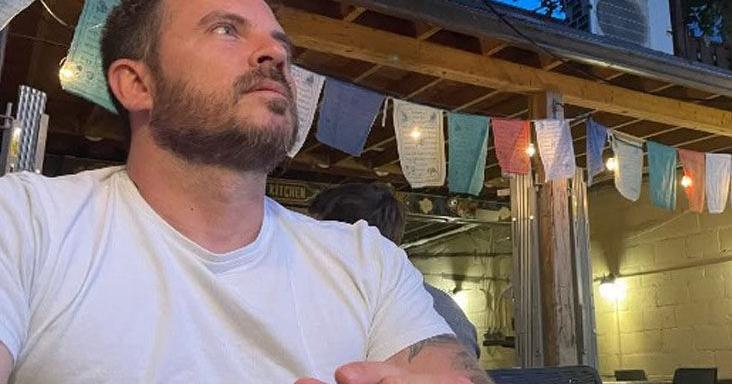By Vishanna Phagoo
Copyright trinidadexpress

The age-old Trini saying, “Trinis like salt, they in everything”, could well have been written for Ross Milne. The Toronto-based chef and owner of Chadon Beni, a restaurant inspired by the flavours of home, has made it his mission to bring the culinary soul of Trinidad and Tobago to Canada.
From crab and dumpling to oysters, macaroni pie, pholourie, and callaloo, Milne introduces both locals and visitors in Toronto to reimagined versions of beloved national dishes. What sets him apart is his ability to reinvent these comfort foods while keeping their authenticity intact. His crab and dumpling, for instance, becomes dumplings stuffed with curried crab meat and served with a rich curry sauce; macaroni pie transforms into deep-fried pie balls paired with callaloo; and pholourie takes on new life when filled with shrimp and served with mango and tamarind chutneys.
Speaking with Express Business at his Queen Street West, Toronto, restaurant, Milne recalled that his journey into food and hospitality began almost by chance. He moved from Trinidad to Toronto in 2019, but his career in the industry stretched back much further.
“My father retired, moved to Tobago, and he opened a bar with my uncle called The Shade. He asked me to come and help him. I said, I’d give him one year… I ended up spending seven years there. I made it into The Shade Nightclub. So, I developed that. I learned about the hospitality and bar industries. I opened a small kitchen there with wings, burgers, fries, etc.”
By 2011, Milne returned to Trinidad and opened Roscos on Ariapita Avenue.
“It was supposed to be a lounge. Eventually, it turned into a nightclub. I sold that off.”
He and his father later launched a seafood and tapas restaurant in Chaguaramas called Boquerón, but the venture didn’t last.
“I ended up doing a food truck called Roscos again, and I did another Roscos, and I moved to Toronto in 2019. Then, Covid-19 hit; I took a year off; and then I realised I wanted to get back in the food industry. I found a spot in Toronto, but I wanted to focus more on a restaurant. And I thought about names, and I was like—the only name I could use is Chadon Beni, because I use chadon beni in everything. And chadon beni is inherently Trinidadian, and like everybody knows chadon beni—if you see chadon beni written, you’re like: ‘There’s a Trini spot.’”
Tapas-style menu
With Chadon Beni, Milne decided on a tapas-style menu to showcase the richness of T&T cuisine.
“But I created a tapas menu, so everything from the crab and dumpling is not whole crab—it’s crab meat stuffed in a dumpling; bake and shark—I made it into a slider version, so you get three of them. I just put spins on authentic Trini food and give it a different look. It’s community-oriented; if you’re a Trini or from the Caribbean, you reach Toronto, and you come into Chadon Beni.”
These creative reinventions came as much from practicality as from inspiration.
“Well, I mean, it is local flavours. Let’s say, the mac pie bites: it’s macaroni pie, but if you bake a pie today, you can’t serve that tomorrow. Even if you warm it up, it’s never going to be the same as day one. And I don’t really serve food like that. So, I thought of a way to do it. Take the pie, form it into balls, egg wash, flour, panko… They could go in a chiller for two days before any fryer is brand new. Cheese sauce on top. So, it was more creating for necessity or for things to work.”
He added that many menu items were born out of avoiding waste.
“Saltfish bites came along because I was making saltfish buljol for brunch, tomato choka for brunch. I always had a lot left over, so I decided to do something with it. So, it’s a necessity. Made me create something, I guess, to avoid wastage. And then you have these ideas. It’s developed now in my head that it’s a type of style stuff. So, then I think of ways to do it again, with different items, whatever. If it’s like a bake and shark, instead of one sandwich, make three mini ones. It’s shareable. It creates people coming out, and they share, they talk, and they have a few drinks. It’s a great experience, to be honest.”
Pimento by plane
Running a Caribbean restaurant in Toronto comes with hurdles and Milne highlighted, “I still drive around for about 20 hours a week, basically collecting stuff. There are certain things that I can’t get from suppliers that I have to get individually. But I did get lucky. I found a supplier that gets me anything from dasheen bush, scotch bonnet peppers, pimento, direct from Trinidad every Thursday on Caribbean Airlines.”
But sourcing isn’t the only challenge, as he added that he is not accustomed to seasonal business.
“Trinidad has wet and dry; rainy, dry seasons. So, it’s a little challenging in that aspect, learning how to do business in winter.”
Milne has found creative ways to adapt, including hosting weekend markets.
“Last year, I started it, and I’ll do it again this year, where I have a market on the weekend. So, I sell all the products that I get for cheaper than Caribbean groceries sell them here. So we do the produce, then things like pig feet, salt prunes, pineapple chow, pepper sauce, and Catch candy. It’s strictly Trini produce and products.”
Sometimes, he even cooks favourites like pelau, corn soup, dhalpuri, buss up shut, conch, and goat for takeaway.
“It’s not sit down and dine—you can grab and go. It gets people out, and again, it’s a community initiative—like, I get grannies coming down here asking if they could hug me for doing this. So, it’s nice.”
Like many restaurateurs, Milne feels the pressure of Toronto’s high costs.
“As costs go up, rent goes up. It is very challenging. The rent is high downtown (Toronto); then your staff and costs are very high. As I sell more food, I need to prep more food. I need more staff hours. So, it becomes challenging in that aspect: learning how to balance it, where your services overlap; but then your costs are too high, so then you only end up paying rent and stuff, and then you actually don’t make money. And that’s kind of where I am now; but I will make money in five years.”
Despite these challenges, Milne has tapped into the power of digital marketing.
“I started with influencers in the beginning. I never really wanted to put my face on a product. I like working behind the scenes. I like speaking to customers, obviously, but I don’t like being out there. Then, about a year and a half ago, I was in a reel with one of the foodie influencers, and I went viral, so my marketing team decided to do reels with me. And we don’t use foodie influencers anymore. It’s just basically me talking about this product or what we’re doing here. It gives an authentic feel to it. It’s also me talking about the food that I made already, so I’m passionate about it, and it comes across like that.”
He added, “From these reels, I have seen people coming from all parts of the States and Canada, and the first thing they usually say is that they have seen me on Instagram. A lot of my Trini friends send me to come up on their Instagram. So that, I think, is the main thing—word of mouth. Obviously, people talk about the food.”
Touching on his background, Milne said he did not have a culinary background and initially studied electronics engineering.
“My first job was in the oil and gas industry, something my father had done when he retired. And really, I wanted to learn how to run a business. He opened a bar. I like hospitality. I like serving drinks, that sort of environment. But eventually, I got into the food aspect of it, and that became my passion. I guess my engineering background made me a little more creative in building things, creating things, foodwise.”
Milne shared his expansion plans, saying, “I mean, I would like to, it’s just that full-service restaurant is a lot of hard work, and I’d actually rather just do quick serve; but I am going to do another Chadon Beni as soon as—yeah, on paper—I’m profitable; then I move on. I do a bigger Chadon Beni. I would like to expand it, you know, bring the Trini food culture out more. Jamaica is well represented. I don’t think Trinidad is as represented in Toronto as Jamaica. I think we could be. So, it’s something that I want to do as well.”
For now, his sights remain on the Greater Toronto Area, but he isn’t ruling out the US.
“And then eventually the States maybe; like, I have dreams. It’s just, you know, to get them done.”
Even as he dreams bigger, he is building locally.
“Right now, I’m in the process of completing a build of a restaurant next door. So, my brother does doubles and coffee out here in the morning. Okay, so we’re gonna move that into a physical space where there’s a cafe, put a cafe with doubles coffee, you know. So, a North American-style cafe, but with Trini food and coffee, basically. And then in the evening, I’m gonna do Trini-style barbecue chicken and fries. Oh, quick serve…no servers…no cocktails; beers.”



